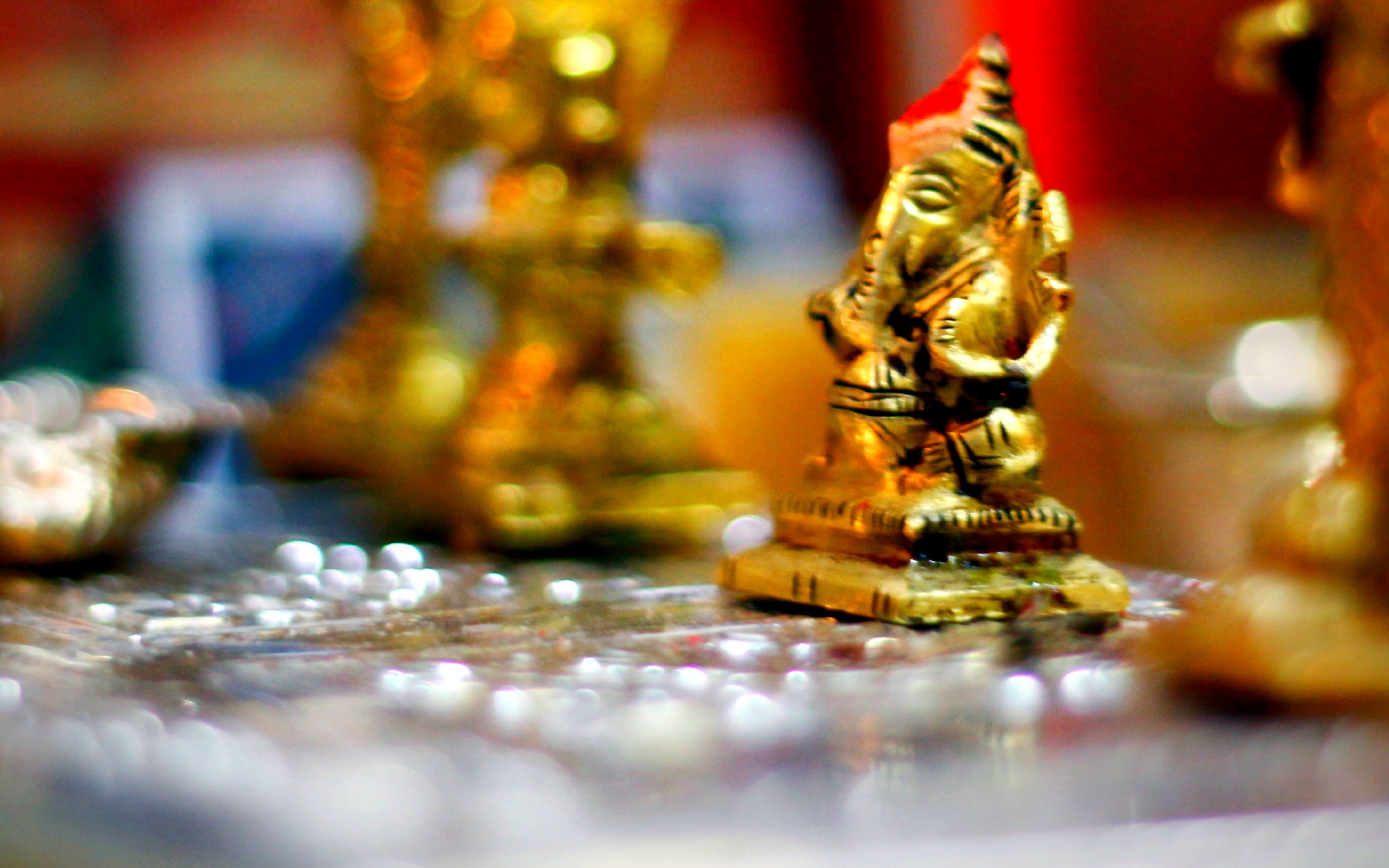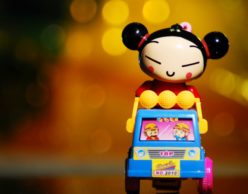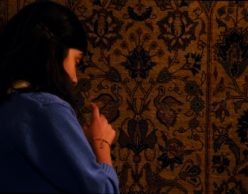What Makes A Hindu A Hindu?

At The Mash-Up Americans, we take it as an article of faith that being mixed opens a world of possibility. But both faith and possibility are tricky. Are we born into a faith? Are we what we were raised to believe? Or are we what we choose? If you are half, can you ever be whole? Our Black-Indian-Baptist-Hindu-American Mash-Up Sharda shares with us how one Southern Baptist peeled back the layers to find her inner Hindu. It might have a little something to do with Donkey Kong.
When I was a kid living in Jamaica, Queens in the 1980s, I remember asking my mom what she thought about reincarnation. I didn’t know that word, “reincarnation,” but I was curious about the concept. “What if you kept coming back to life again and again until you learn how to get it right?” I asked my mother. I remember her looking a bit surprised. She said, “I think you just explained Buddhism.”
I was also describing a core belief of Hinduism, not that I knew it at the time.
Other than being a vegetarian, I knew very little about what it meant to be a Hindu.
Other than being a vegetarian, I knew very little about what it meant to be a Hindu. My father was out of the family picture, and had been since I was a baby. He was a Hindu and came to the United States from India as a graduate student. He met my mother and committed his first act of shameless rebellion by consuming a burger. Fathering me and marrying my mom, a black woman from Detroit, was his next bold affront to family convention and tradition.
However, he soon got cold feet and ran away, presumably also renouncing burgers and returning to Hinduism. He gave me my name, but not much else. “Sharda” represents a manifestation of the Hindu goddess Saraswati, associated with wisdom, art and beauty. I thought of Sharda/Saraswati as an Indian version of Athena or Diana because, you know, I was in the U.S. getting a Eurocentric education and ancient Rome and Greece were my go-to pagan points of reference.
I was far more attuned to the Southern Baptist traditions of my mother’s black family – with the booming baritone of charismatic ministers, theatrical shouts of joy and stunning Sunday fashion statements. I have no idea where my “coming back to life to get it right” idea came from. Maybe it was the Donkey Kong I played as a kid?
I was in junior high when I first experienced anti-Hindu racism. In Queens at the time, East Asians had the intrigue and danger of gangs surrounding them. But South Asians were a favorite ethnic punching bag. Common insults were “Hindu,” “Red Dot,” “Patel” (because a bunch of Indian classmates had the last name Patel), “Apu from the Simpsons,” “Chicken Curry,” etc. I have a chicken pox scar in the middle of my forehead, which was naturally hilarious for my anti-Hindu tormenters.
I was bussing from Jamaica to Rego Park, where the middle class community was predominantly Jewish. A group of boys from school stood outside of their synagogue (monstrously, right in front their families) taunting me as a chorus, yelling “Hey Hindu! Hey Hindu! Why don’t you come over here and learn about a real religion?”
As someone who was baptized in a Detroit church – abruptly immersed in a small pool under the pulpit while the choir sang “Wade in the Water” – it was, pardon my French, kind of a mind fuck.
Does being tormented as a “Hindu” make me Hindu? Does my name? My belief in reincarnation? Did my father give me an innate Hindu-ness?
In college, I began to study yoga. I’ve had the distinct awkwardness of taking many yoga classes full of white people, and feeling on the spot for some sort of Indian authenticity that I wasn’t sure I had. However, the more I studied the principles and history of Hinduism, the more I connected to the religion, which allows for a very personal concept of what it means to practice and be devout. I’ve discovered that whether or not I am Hindu or identify as one [Editor’s note: Is there a difference?], I seem to have significant Hindu tendencies.
Being mixed forces you to see the world from different angles, which is both fabulous and isolating. The mutability can be frustrating, but it offers gifts. One of them: The ability to be asked, “Baptist?” “Hindu?” “Indian?” “Black?” And to respond with “Yes.”





